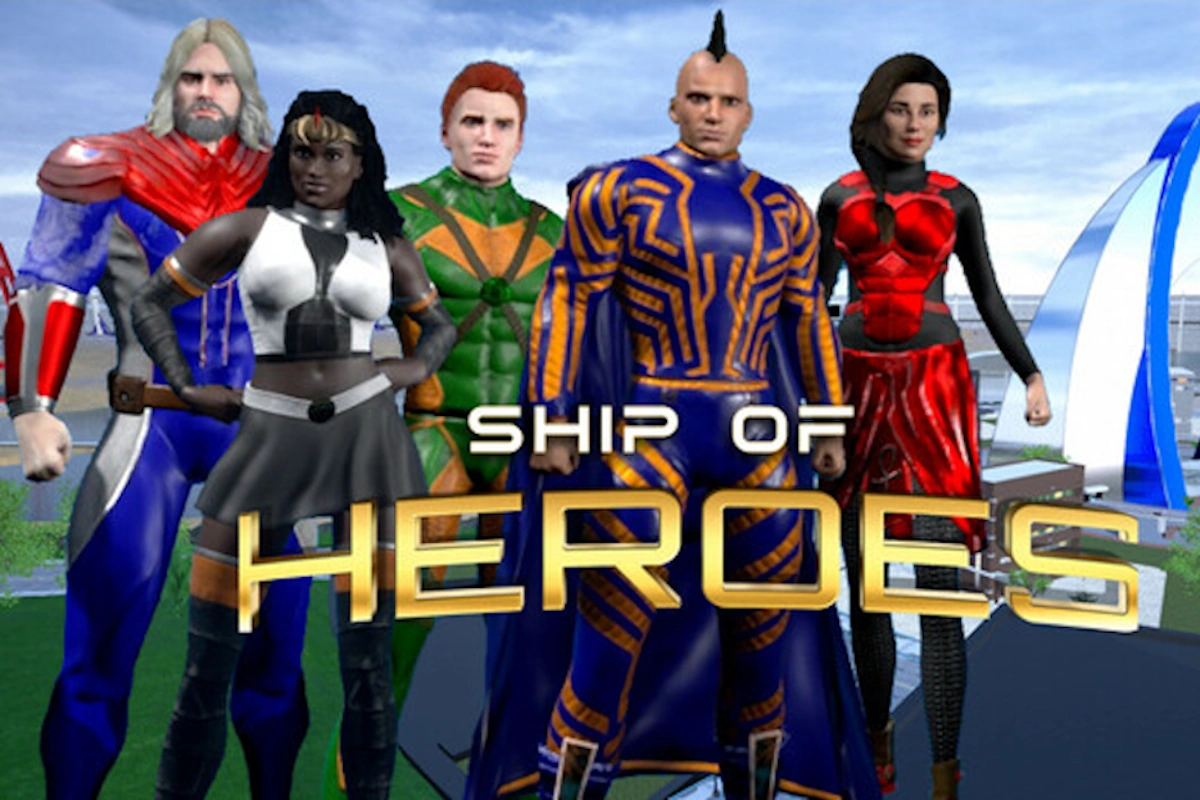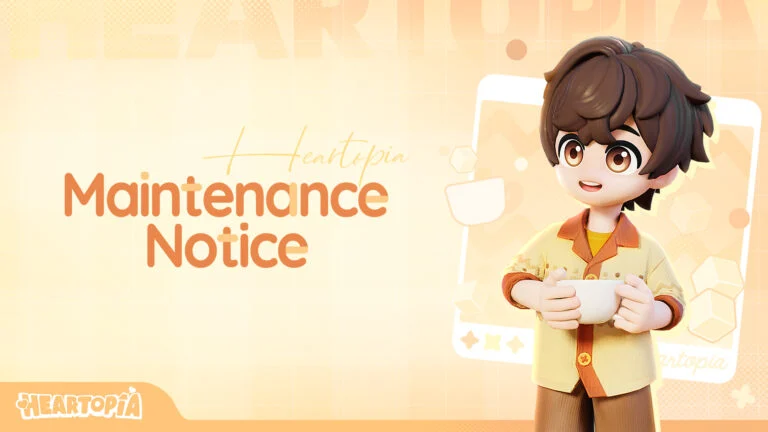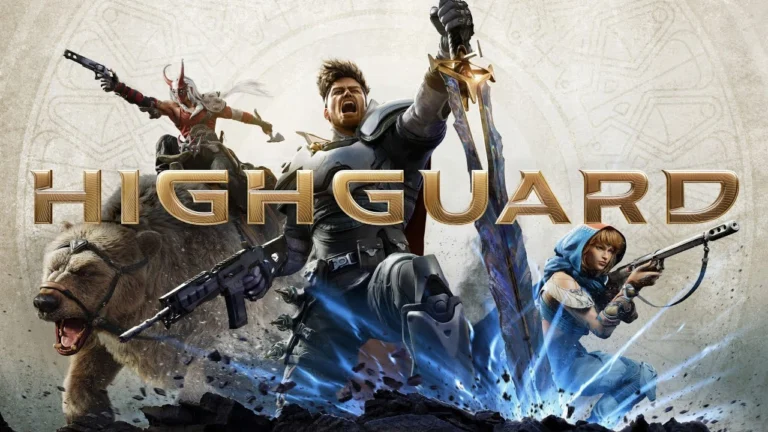Ship of Heroes, an indie-developed superhero MMO nearly a decade in the making, launched on Steam on September 22. Despite years of anticipation from a small but dedicated fanbase, the game debuted to just 100 peak concurrent players on the Steam charts and has already drawn mostly negative reviews.
Early players have criticized the $60 USD price tag, pointing to low-quality assets, buggy quests, frequent crashes, and AI-generated voice acting — issues that led many to request immediate refunds.
What is Ship of Heroes?
Ship of Heroes has been floating around MMO circles for nearly a decade, first announcing in 2016, and then appearing on Kickstarter in 2017 following in the footsteps of the much-loved City of Heroes. Despite canceling the Kickstarter campaign due to lack of momentum, the project carved out a small but vocal community of superhero fans eager for anything to fill the void left since City of Heroes shut down.
Ship of Heroes set itself out to be a spiritual successor to City of Heroes, the 2004 superhero MMO that still holds its place in the genre today through private servers like City of Heroes: Homecoming. What made the original so beloved was a limitless character creator and class system, and being part of a living comic-book world.
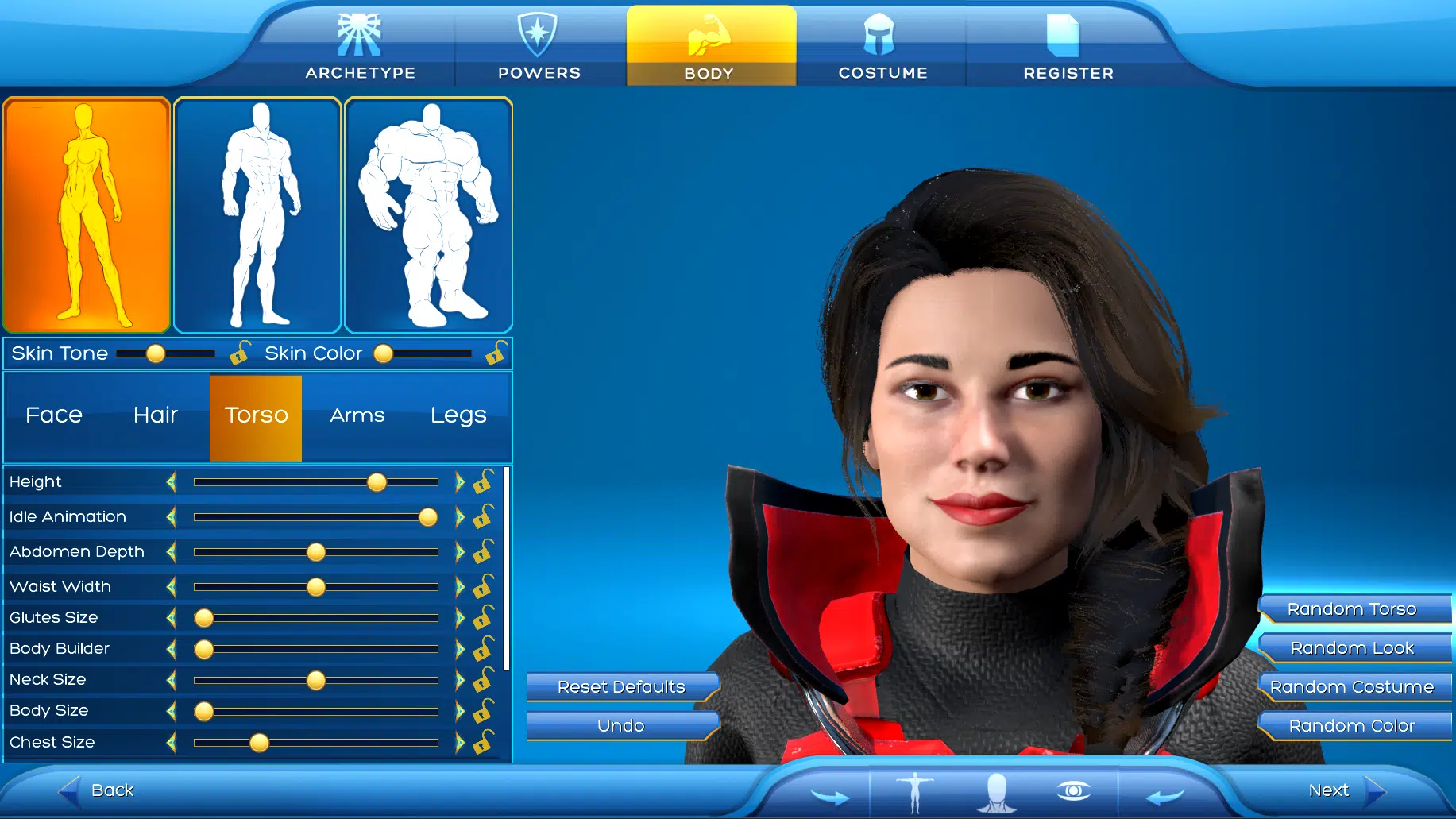
Ship of Heroes joined the ranks of games like City of Titans, Valiance Online, and Heroes and Villains — indie projects that failed to fully capture the nostalgia surrounding the original game. All of these faced the same problems: limited budget, over-ambitious design goals and scope creep, and convincing players to buy their game when the original is available to play.
Ship of Heroes Release and Player Response
Within a few hours of the game’s launch, Ship of Heroes reached a peak of just 100 concurrent players before starting to decline with no sign of recovery.
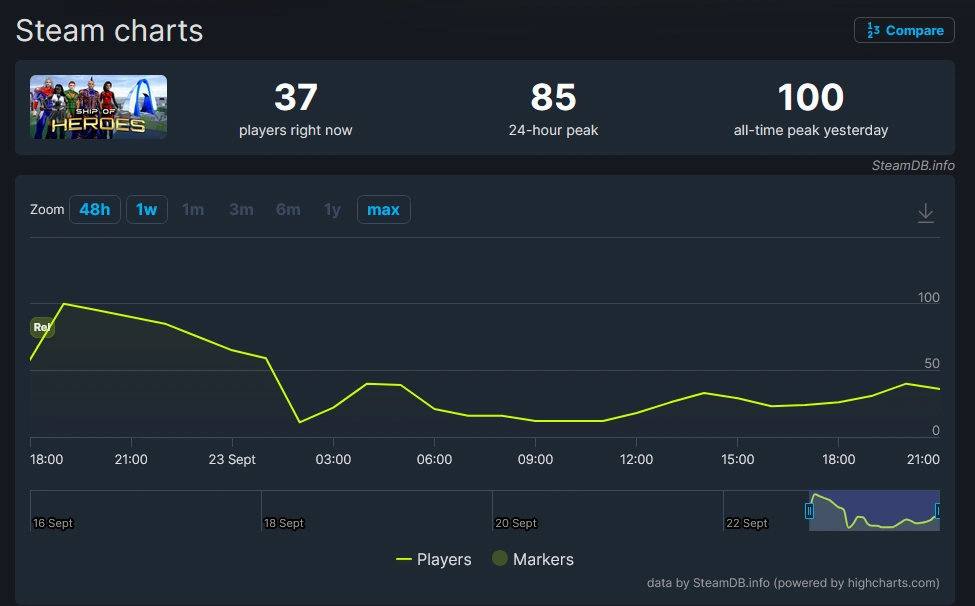
The game launched with a $60 USD box price and a $15 USD monthly subscription, with no free trial. This pricing makes it more expensive than established MMOs like World of Warcraft or Final Fantasy XIV.

Despite the premium model and 12 years of development, the game launched in a buggy and unfinished state, immediately driving its Steam reviews into Mostly Negative. Players criticized crashing, broken quests and the overall low-quality feel of the game that failed to justify the price tag.
Ship of Heroes Developer and Community Backlash
Before releasing the game and after announcing the price, the Steam discussion forums were lit up with feedback and concerns there would not be enough players for an MMORPG, but the developers doubled-down on their decision, stating that it would be best for the health of the game, which was met with criticism.
“We understand your financial constraints and respect them” one developer, Integral, stated.
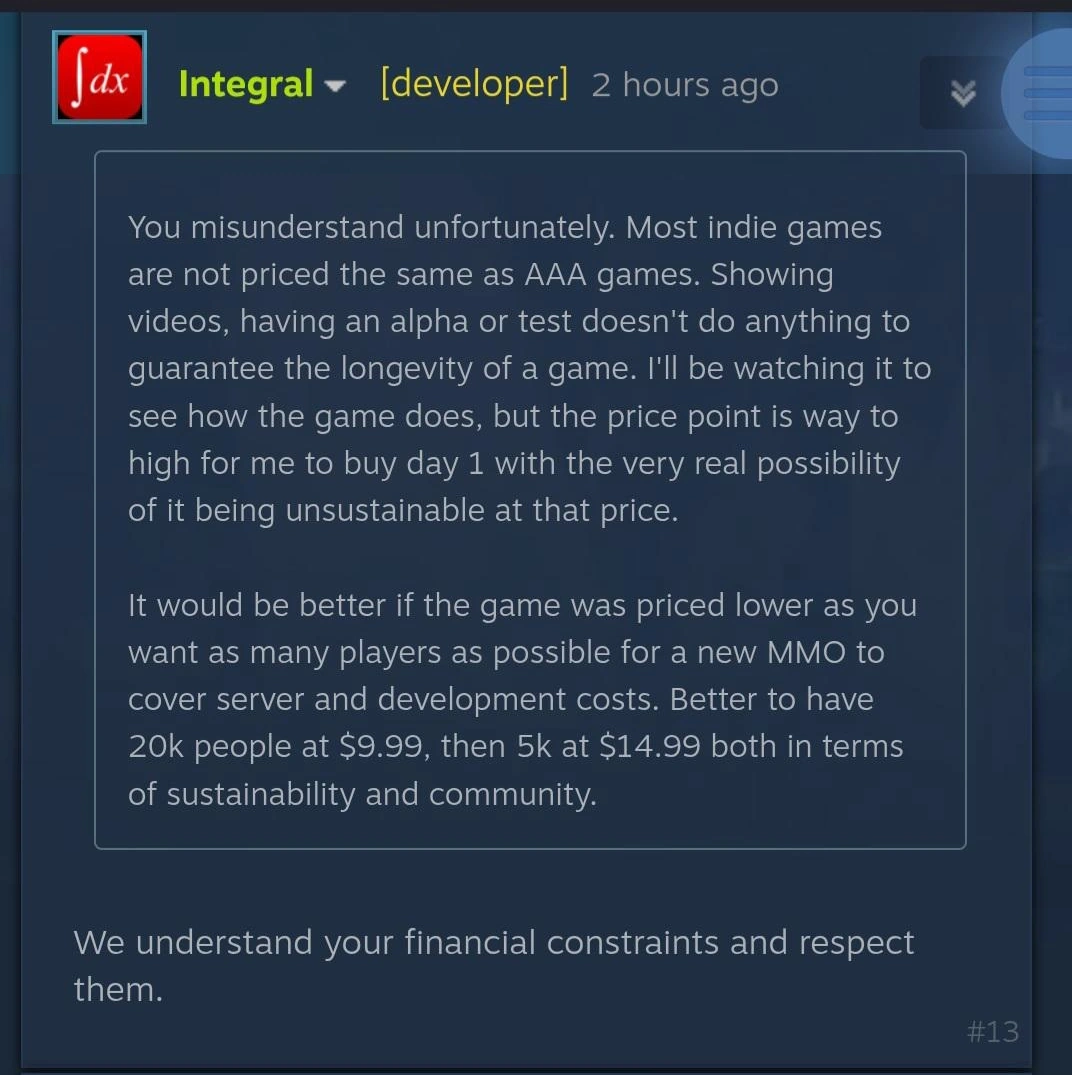
Players expressed frustration over what they saw as tone-deaf responses to their concerns, with the loudest voices frequently banned and forum threads deleted under the usual justification of removing trolling.
Why Did Ship of Heroes Fail?
Ship of Heroes follows the usual pattern of ambitious indie MMO failures: a long 12-year, under-resourced development cycle that resulted in a flawed game at launch. Players are often willing to overlook these flaws for an indie developer when it’s a game they’re passionate about and have been following, but the steep premium pricing made it more expensive than the largest MMOs today.
Heroic Games Corporation demanded a subscription for an indie MMO in a genre where only the three industry titans — World of Warcraft, Final Fantasy XIV, and RuneScape — require one, all of which offer substantial free-to-play sections for players to try before committing.
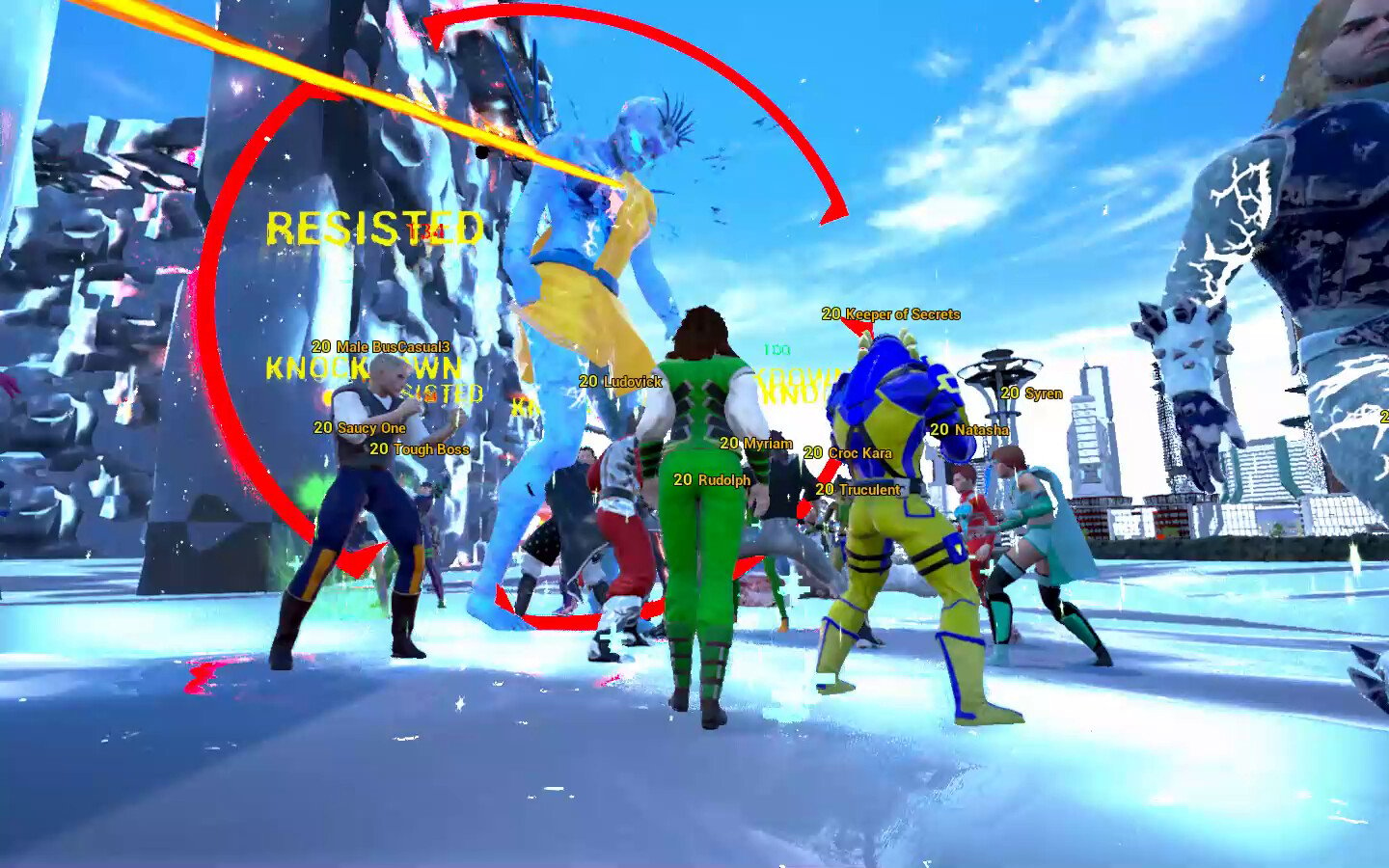
City of Heroes set a high bar, allowing players to live out the superhero fantasy and team up with their friends in an MMO. Ship of Heroes (alongside others before) have failed to capture that magic, or to at least innovate and improve on the genre, instead feeling largely derivative with a fresh coat of Unreal Engine polish.
And this all precludes the inevitable backlash that comes with arguing with the playerbase on a public forum.
Ultimately, Ship of Heroes serves as a cautionary tale of how rose-tinted glasses, ambition, and indie limitations collide in the unforgiving world of MMORPGs.
